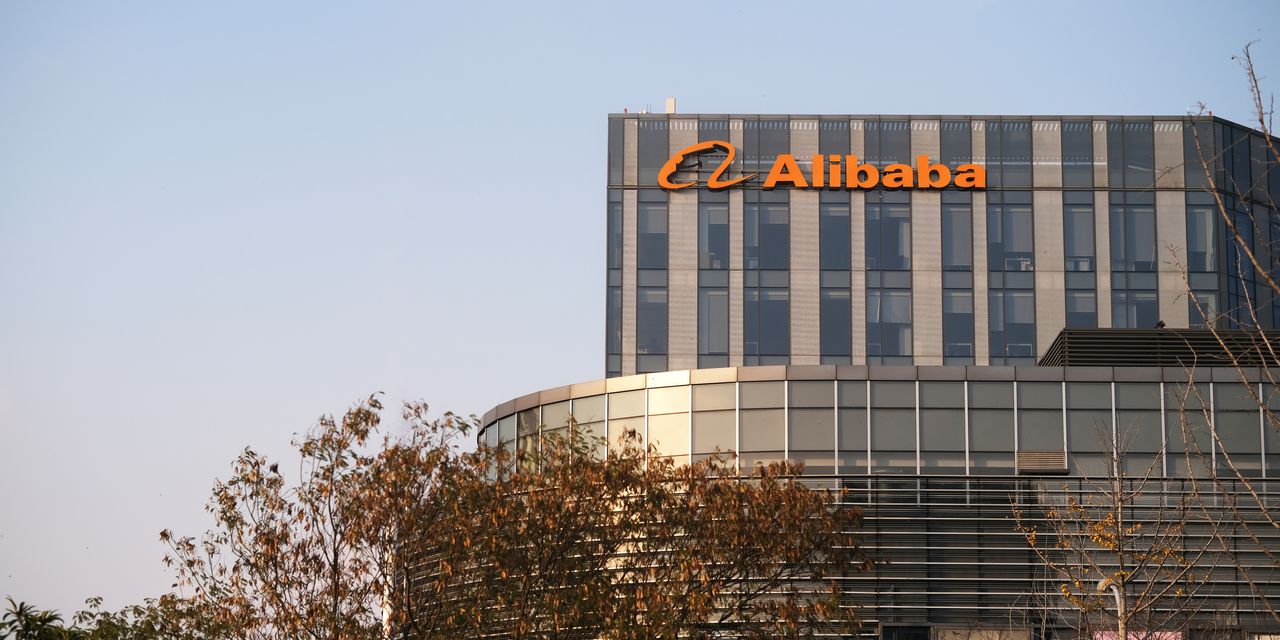Alibaba
trounced Wall Street’s expectations for the June quarter, delivering strong top- and bottom-line growth as it exhibited the hallmarks of a group doing all the right things in a tough operating environment.
Understandably, investors are rewarding the company for its performance. The problem, and case for caution, is that concern is mounting about a slowdown in the world’s second-largest economy. Management did nothing to address that, following its usual practice of not issuing financial forecasts.
Alibaba (ticker: BABA) reported earnings of 17.37 Chinese yuan ($2.40) per American depositary receipt, which represents its U.S.-listed stock, on revenue of 234.2 billion yuan ($32.3 billion). The results for the three months to the end of June easily outpaced expectations of analysts surveyed by FactSet, who had estimated profit of 14.59 yuan a share on revenue of 224.7 billion yuan. The stock advanced 3.8% in U.S. premarket trading on Thursday.
“Alibaba delivered a solid quarter as we continue to execute our reorganization, which is beginning to unleash new energy across our businesses,” said Daniel Zhang, Alibaba’s chairman and CEO, referring to the company’s breakup. Announced earlier this year, it marks a shift from conglomerate to holding company intended to unlock shareholder value—and could completely change how the stock is valued.
Investors have every right to be happy with Alibaba’s results. Per-share profit is up 48% since last year and annual revenue rose 14%—an encouraging departure from four quarters of growth between 0% and 3%.
But there is bad news baked into the good. Chief Financial Officer Toby Xu put the company’s performance down to “strong business momentum and our focus on operating efficiency across businesses.”
That’s exactly right. The top-line recovery was thanks to the core Chinese e-commerce business, with an aggressive customer-acquisition program helping platform Taobao increase daily active users by 6.5% since last year. For the bottom line, costs as a percentage of revenue were down 6% year over year, likely helped at least in part by rare layoffs announced in May.
These are clear signs that Alibaba, as a business, is doing things right. But it might not matter all that much.
China’s economy is in a slowdown—a development that has been creeping into economic data releases for months but has become impossible to ignore with the latest numbers for July. Imports, a bellwether for consumer behavior that is at the core of Alibaba’s business, are spiraling lower, and the country just slipped into deflation.
The seriousness of the weakness in China has rattled Alibaba stock and U.S. markets at large this week. It isn’t going away, and it isn’t good for Alibaba’s business.
A focus on attracting and retaining new online users and being ruthless about operating efficiency can only go so far to mitigate the weight of a sagging economy. Revenue and profit should be up because the Chinese consumer is strong. That’s not the case.
That isn’t to say Alibaba isn’t well-positioned to weather the storm. “Our strong free cash flow and balance sheet put us in an excellent position to strengthen our competitiveness and capture new opportunities,” said Xu, the CFO. Indeed, quarterly free cash flow is up 76% since last year to some $5.4 billion.
But the macroeconomic outlook in China is grim, and hopes of stimulus remain unrealized.
Investors can celebrate on Thursday. Yet given the backdrop, there is reason to believe that Wall Street, which sees Alibaba posting higher revenue again in September before a blowout December quarter, should be a bit more cautious.
Write to Jack Denton at [email protected]
Read the full article here


